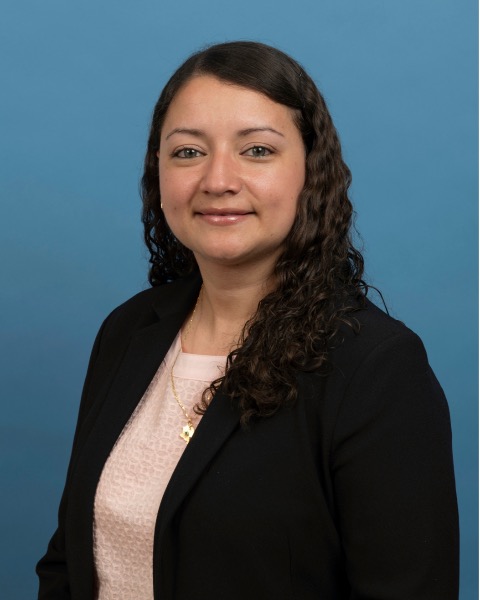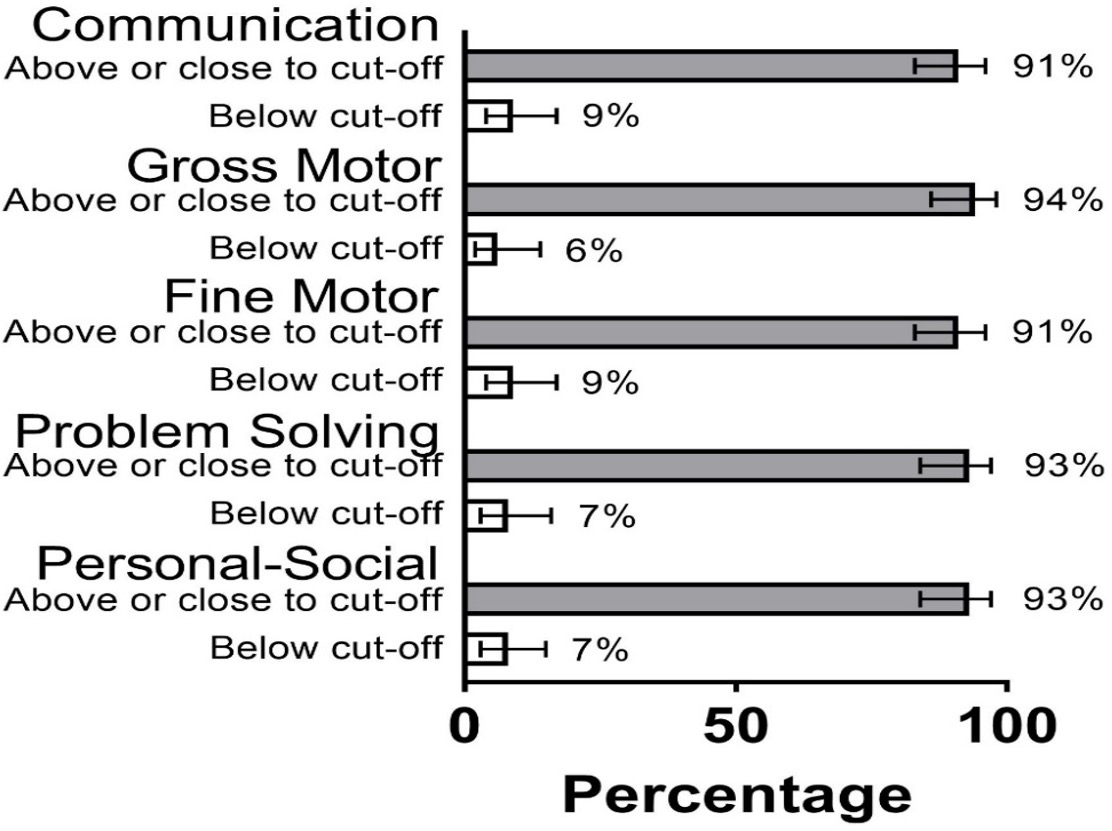Infectious Diseases
Session: Infectious Diseases 1
581 - Neurodevelopmental delay in children exposed to maternal SARS-CoV-2 in pregnancy.
Friday, May 3, 2024
5:15 PM - 7:15 PM ET
Poster Number: 581
Publication Number: 581.375
Publication Number: 581.375

VIVIANA FAJARDO, MD
Assistant Clinical Professor
UCLA Mattel Childrens Hospital
Los Angeles, California, United States
Presenting Author(s)
Background: Immune activation during pregnancy is associated with potential neurodevelopmental repercussions. Although vertical transmission of SARS CoV-2 is rare, the virus causes maternal immune activation.
Objective: Evaluate neurodevelopmental outcomes in children exposed to SARS-CoV-2 during gestation and unexposed controls
Design/Methods: Prospective cohort study conducted at UCLA, Los Angeles (LA) and FIOCRUZ-affiliated hospitals, Rio de Janeiro (Rio), Brazil. Participants included children exposed to SARS-CoV-2 in pregnancy or born prior to the pandemic. Developmental delay (DD) [score <-2 SD ( < 70)] or risk of DD (rDD), [score <-1 SD >-2 SD ( < 85-70)] were defined by Bayley-III assessments of cognitive, language or motor domains or below the cut-off Ages and Stages Questionnaires (ASQ-3) scores. Modified Checklist for Autism in Toddlers (MCHAT) was used to screen for risk of autism.
Results: The study started in 4/2020. By 12/2022, 97 children aged 5-30 months in LA and 75 children aged 5-38 months in Rio underwent neurodevelopmental testing; 128 had Bayley-III and 44 ASQ-3 (172 exposed children). 128 unexposed children (50 in LA aged 6-34 months; 78 in Rio aged 11-28 months) evaluated by Bayley-III between 1/2018 to 12/2019 were used as comparators with 300 total children. Twelve exposed children (9.4%) had DD on Bayley-III vs. 2 control children (1.6%), p=0.007; 8 additional children (18.2%) were below the ASQ-3 cut-off. DD was seen in 20 of 172 exposed children (11.6%). Twelve percent of children in Rio and 5.7% in LA had Bayley-III scores compatible with DD, versus 2.6% control children in Rio (p=0.02) and none in LA (p=0.12). rDD was identified in 34 exposed (26.6%) and 21 control children (16.4%), p=0.05; Rio: 44% exposed vs. 24% control children had rDD (p=0.01); LA: 1.9% exposed vs. 4% control children had rDD (p=0.60). Language delay was the most affected domain. Maternal age > 40 years was a risk factor for DD in LA (OR:6.2,95% CI:1.1-34.8). Severe/critical maternal COVID-19 was a predictor of below average performance (rDD and DD) (2.6, 95% CI:1.1-6.4). 137 children aged > 18 months were screened for ASD using MCHAT. In the LA cohort of 65 children, 6 screened positive for ASD on M-CHAT with 3 confirmed cases (4%); the remainder await repeat evaluations. In Rio, of 72 children, 6 screened positive (8.3%). In total 12 of 137 children (8.7%) screened positive on MCHAT.
Conclusion(s): DD is more prevalent in children exposed to antenatal maternal SARS-CoV-2 compared to controls. Infant neurodevelopmental monitoring should be considered following COVID-19 in pregnancy.


